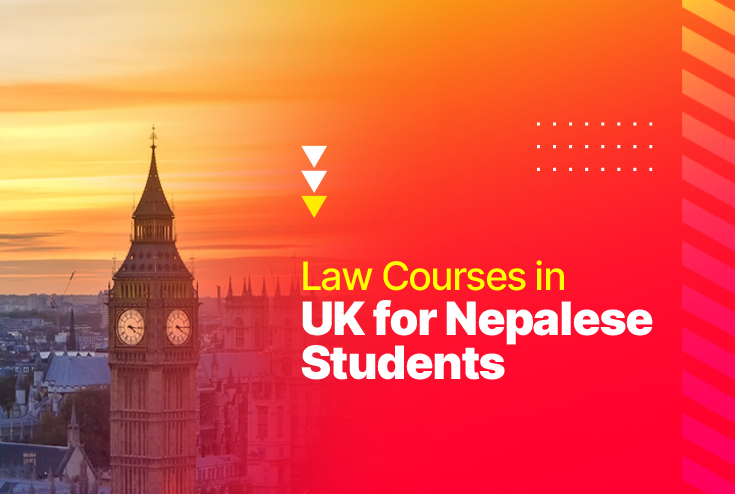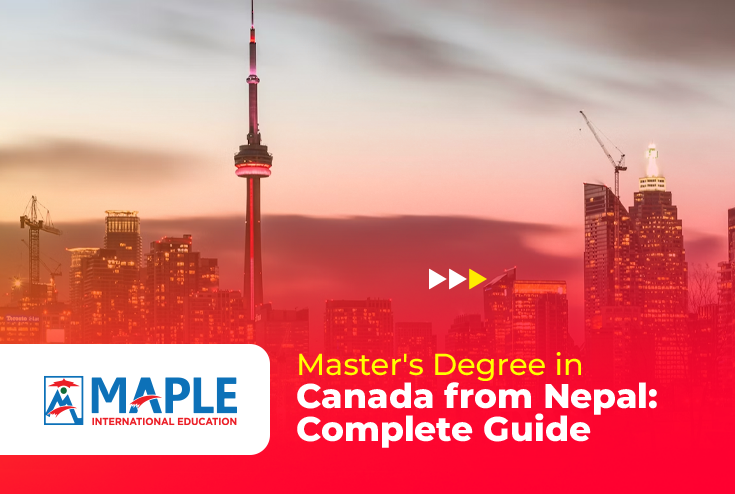
Complete Guide on Law Courses in the UK for Nepalese Students
The United Kingdom stands as one of the world's leading destinations for legal education, offering internationally recognized law degrees that open doors to global career opportunities. For Nepalese students aspiring to pursue legal studies, the UK provides an exceptional blend of academic excellence, diverse cultural experiences, and professional networking opportunities that can transform their career trajectory.
The UK legal education system is renowned for its rigorous academic standards, distinguished faculty, and strong connections to the legal profession. With a rich legal heritage spanning centuries, UK law schools offer students the opportunity to study in the birthplace of common law while gaining exposure to international legal frameworks that are increasingly relevant in today's globalized world.
Table of Contents
Why Choose the UK for Law Studies?
Types of Law Courses Available in the UK
Undergraduate Programs
Postgraduate Programs
Entry Requirements for Law Courses in the UK
Academic Requirements
English Language Proficiency
Additional Requirements
Top UK Universities for Studying Law
Russell Group Universities
Other Leading Law Schools
Cost of Studying Law in the UK for Nepalese Students
Tuition Fees
Living Costs
Scholarships and Financial Aid Opportunities in the UK for Nepalese Students
Government and Institutional Scholarships
University-Specific Scholarships
Private and Corporate Scholarships
UK Student Visa Requirements for Nepalese Students
Financial Requirements
Supporting Documents
Career Scope After Law Courses in the UK
Career Opportunities After LLB
Career Opportunities After LLM
Average Salary and Job Demand in 2025
Conclusion
FAQs - Law Courses in the UK for Nepalese Students
Why Choose the UK for Law Studies?
The UK's legal education system offers unparalleled advantages for international students seeking world-class legal training. With centuries of legal tradition and innovation, UK law schools provide the perfect foundation for a successful legal career, whether in the UK, Nepal, or internationally.
Key reasons to choose the UK for your law studies:
World-renowned academic excellence - Home to globally top-ranked universities like Oxford, Cambridge, LSE, and UCL that consistently appear in international rankings
Birthplace of common law - Study legal principles that form the foundation of legal systems in over 80 countries, including aspects relevant to Nepal's legal framework
Internationally recognized qualifications - UK law degrees are respected worldwide, opening doors to global career opportunities
Diverse specialization options - Choose from extensive areas including international law, human rights, commercial law, criminal law, and intellectual property
Strong industry connections - Direct access to leading law firms, barristers' chambers, and legal organizations for internships and graduate positions
Multicultural learning environment - Study alongside students from 150+ countries, gaining valuable cross-cultural legal perspectives
Research-intensive education - Learn from world-leading legal scholars and contribute to cutting-edge legal research
Types of Law Courses Available in the UK
UK universities offer comprehensive law programs designed to meet diverse student interests and career aspirations, from traditional law degrees to conversion courses for career changers.
Undergraduate Programs
1. Bachelor of Laws (LLB) - 3 Years
The LLB is the standard undergraduate law degree in the UK, providing a comprehensive foundation in legal principles and practice. This program forms the cornerstone of legal education and is essential for anyone seeking to become a solicitor or barrister.
Who It's For:
Students with strong analytical and communication skills
Those interested in pursuing legal careers
Individuals seeking versatile degree with broad career applications
Students who enjoy debate, research, and critical thinking
Key Learnings:
Foundation Subjects: English Legal System, Constitutional and Administrative Law (including retained EU Law), Contract Law, Tort Law, Land Law, Equity and Trusts, Criminal Law
Research and Writing Skills: Legal research methodology, case analysis, legal writing
Critical Analysis: Statutory interpretation, case law examination, legal reasoning
Professional Skills: Advocacy, negotiation, client interviewing, legal ethics
Outcome/Career Path:
Qualification for Legal Practice Course (LPC) to become a solicitor
Eligibility for Bar Professional Training Course (BPTC) to become a barrister
Graduate training schemes in law firms
Corporate legal departments, government positions, academia
2. Joint Honours Degrees - 3 Years
Joint Honours programs combine law with complementary disciplines, offering broader perspectives and enhanced employability across multiple sectors.
Who It's For:
Students interested in interdisciplinary approaches
Those seeking careers at the intersection of law and other fields
Students wanting broader knowledge base
Individuals considering non-traditional legal careers
Popular Combinations:
Law with Business Studies
Law with International Relations
Law with Criminology
Law with Politics
Law with Economics
Law with Philosophy
Key Learnings:
Core legal foundation subjects (reduced from single honors)
Specialized modules from chosen second subject
Interdisciplinary projects and research
Cross-disciplinary analytical skills
Outcome/Career Path:
Corporate roles combining legal and business knowledge
International organizations and NGOs
Government policy and diplomatic services
Consultancy and advisory positions
3. MLaw (Master of Law) - 4 Years
An integrated undergraduate and postgraduate program combining LLB studies with advanced master's level specialization, providing enhanced legal expertise and research capabilities.
Who It's For:
High-achieving students seeking advanced legal education
Those planning academic or research careers
Students interested in specialized legal practice
Individuals seeking competitive advantage in legal market
Key Learnings:
Years 1-3: Standard LLB curriculum
Year 4: Advanced specialization in chosen area
Independent research project or dissertation
Advanced legal skills and methodology
International and comparative law perspectives
Outcome/Career Path:
Senior positions in top law firms
In-house counsel roles
Academic and research positions
International legal organizations
Judicial careers
Postgraduate Programs
1. Postgraduate Diploma in Law (PGDL/GDL) - 1 Year
The Graduate Diploma in Law is an intensive conversion course designed for graduates from non-law backgrounds who wish to pursue legal careers. Also known as the Common Professional Examination (CPE), this program covers the same foundation subjects as an LLB in an accelerated format.
Who It's For:
Graduates with non-law degrees seeking legal careers
Career changers from other professions
International students with foreign law degrees
Professionals wanting to add legal qualifications to their expertise
Key Learnings:
Seven Foundation Subjects: English Legal System, Constitutional and Administrative Law, Contract Law, Tort Law, Criminal Law, Land Law, Equity and Trusts
Intensive Study Format: Accelerated learning with comprehensive coverage
Legal Skills Development: Research, analysis, and professional legal skills
Assessment Methods: Mix of coursework, exams, and practical exercises
Professional Preparation: Foundation for subsequent legal training
Outcome/Career Path:
Direct progression to Solicitors Qualifying Examination (SQE) route
Eligibility for Bar Professional Training Course (BPTC)
In-house legal roles in corporations
Legal advisory positions in various sectors
Further specialization through LLM programs
2. Master of Laws (LLM) - 1 Year
The LLM is a specialized postgraduate degree allowing students to develop expertise in specific areas of law. These programs combine advanced academic study with practical application.
Who It's For:
Law graduates seeking specialization
Legal professionals wanting to advance their careers
International lawyers seeking UK qualifications
Students planning academic or research careers
Specialization Areas:
International Law: Public international law, international dispute resolution
Human Rights Law: International human rights, humanitarian law
Commercial and Corporate Law: Business law, mergers and acquisitions
Intellectual Property Law: Patents, trademarks, copyright
Environmental Law: Climate change law, environmental regulation
Criminal Law and Criminal Justice: International criminal law, criminology
European Law: EU law, post-Brexit legal frameworks
Maritime Law: Shipping law, admiralty law
Tax Law: International taxation, corporate tax
Key Learnings:
Advanced theoretical and practical knowledge in chosen specialization
Research methodology and dissertation writing
International and comparative perspectives
Guest lectures from leading practitioners
Moot court competitions and practical exercises
Outcome/Career Path:
Specialized legal practice in chosen field
International law firms and organizations
Government and regulatory bodies
Academic and research positions
In-house counsel in relevant industries
3. Master of Laws by Research (LLM by Research) - 1-2 Years
A research-intensive program for students seeking to pursue academic careers or conduct specialized legal research, culminating in a substantial dissertation under expert supervision.
Who It's For:
Students planning PhD studies
Legal professionals seeking research experience
Those interested in academic careers
Students wanting to contribute to legal scholarship
Key Learnings:
Independent research under academic supervision
Research methodology and advanced academic writing
Literature review and critical analysis skills
Conference presentations and publication opportunities
Outcome/Career Path:
PhD programs and academic careers
Research positions in universities and think tanks
Policy development and legislative drafting
Senior advisory roles in government and international organizations
Consultancy and expert witness work
Entry Requirements for Law Courses in the UK
Academic Requirements
For Undergraduate Programs:
Completion of High School (10+2) with strong grades
Some universities may require A-levels or foundation courses
For Postgraduate Programs:
Bachelor's degree with a minimum of 60%+ in law or a related field
For conversion courses (GDL), a bachelor's degree in any discipline is required
English Language Proficiency
For Undergraduate Programs:
IELTS: Overall 6.0 - 6.5 with no band below 5.5 - 6.0
TOEFL iBT: 80 - 90 overall score
PTE Academic: 59 - 62 overall score
For Postgraduate Programs:
IELTS: Overall 6.5 - 7.0 with no band below 6.0-6.5
TOEFL iBT: 90 - 100 overall score
PTE Academic: 62 - 70 overall score
Cambridge Advanced English (CAE): Grade B or above
Additional Requirements
Personal statement demonstrating interest in law
Academic references
CV highlighting relevant experience
Some universities may require interviews
Top UK Universities for Studying Law
Russell Group Universities
University of Oxford
Renowned for its tutorial system and academic excellence
Offers BA Jurisprudence and various postgraduate programs
Highly competitive admission process
University of Cambridge
Prestigious law degree with emphasis on critical thinking
Strong alumni network in legal profession
Offers BA Law and LLM programs
London School of Economics (LSE)
Internationally recognized for legal scholarship
Strong focus on international and comparative law
Excellent career prospects in global law firms
University College London (UCL)
Top-ranked law faculty with diverse specializations
Strong research focus and international outlook
Offers various scholarship opportunities
King's College London
Study for a Law LLB with The Dickson Poon School of Law at King's College London
Strong connections to legal profession
Central London location with excellent networking opportunities
Other Leading Law Schools
University of Edinburgh
Excellent reputation in international law
Beautiful campus in historic city
Offers various scholarship opportunities
University of Bristol
Strong emphasis on practical legal skills
Excellent student support services
Good graduate employment rates
University of Nottingham
Innovative teaching methods
Strong international focus
Competitive tuition fees
University of Law
Specialist institution focusing exclusively on legal education
Strong industry connections and practical training
Cost of Studying Law in the UK for Nepalese Students
The cost of studying a Law degree in the UK is directly affected by your choice of university, colleges/universities, and location in the UK. However, below are the average costs that a student can expect:
Tuition Fees
LLB (Undergraduate Law): £15,000 – £25,000 per year.
LLM (Postgraduate Law): £16,000 – £28,000 per year.
Living Costs
Outside London: £9,000 – £12,000/year.
London: £12,000 – £15,000/year.
Scholarships and Financial Aid Opportunities in the UK for Nepalese Students
Government and Institutional Scholarships
GREAT Scholarships for Justice and Law
Each scholarship offers a minimum of £10,000 towards tuition fees. The justice and law scholarships are in partnership with the Ministry for Justice. They are jointly funded by the British Council, the GREAT Britain Campaign, and participating UK higher education institutions.
Chevening Scholarships
Full scholarships for postgraduate study
Covers tuition fees, living allowance, and other expenses
Highly competitive selection process
Commonwealth Scholarships
Available for students from Commonwealth countries
Covers full tuition and living costs
Merit-based selection
University-Specific Scholarships
Oxford University Scholarships
Clarendon Fund Scholarships
Oxford-Nepal Scholarships
Subject-specific awards
Cambridge University Scholarships
Gates Cambridge Scholarships
Cambridge Trust Scholarships
College-specific awards
LSE Scholarships
Graduate Support Scheme
International students awards
Merit-based funding
Private and Corporate Scholarships
Law Society Scholarships
Diversity Access Scheme for underrepresented groups
Professional development funding
Law Firm Scholarships
Many international law firms offer scholarships
Often include training contracts or internship opportunities
UK Student Visa Requirements for Nepalese Students
Applying for a UK student visa from Nepal involves:
Securing a Confirmation of Acceptance for Studies (CAS) from a UK institution
Meeting English language requirements (e.g., IELTS)
Demonstrating proof of funds and academic background
Submitting your online visa application and attending biometric appointment.
Financial Requirements
Tuition Fees:
Must demonstrate ability to pay first year tuition
Bank statements showing sufficient funds / Education Loan Letters
Living Costs:
£1,483 per month (for up to 9 months) for London
£1,136 per month (for up to 9 months) for outside London
Funds must be held for 28 consecutive days
Supporting Documents
Valid passport
CAS from UK institution
Academic qualifications
English language certificates
Financial evidence (bank balance or education loan)
TB test results
Career Scope After Law Courses in the UK
Career Opportunities After LLB
Graduates can begin careers as Solicitors, Barristers, Legal Consultants, Corporate Lawyers, Legal Researchers, or Public Sector Lawyers. Entry-level roles often include trainee solicitor, paralegal, or junior legal associate.
Career Opportunities After LLM
With advanced specialization, graduates move into higher-level positions such as International Business Lawyer, Human Rights Advocate, Corporate Legal Advisor, In-House Counsel, Academic/Researcher, or Policy Consultant. Many also join NGOs, UN agencies, and multinational firms.
Average Salary and Job Demand in 2025
LLB graduate: £25,000 – £40,000 starting; can exceed £100,000+ at top London firms.
LLM graduate: £30,000 – £90,000+ depending on specialization and employer; corporate and in-house roles may reach £120,000+.
Job Demand 2025: Rising demand in the areas of property law, corporate/commercial law, cyber security law, AI/tech law, and ESG (environmental, social, governance) law. Newly Qualified solicitors in top firms command salaries up to £150,000–£180,000 in London.
Conclusion
Pursuing law studies in the UK represents an exceptional opportunity for Nepalese students to gain world-class legal education while experiencing one of the world's most vibrant and diverse academic environments. The combination of academic excellence, professional opportunities, and cultural enrichment makes the UK an ideal destination for legal education.
The journey from application to graduation requires careful planning, dedication, and financial preparation, but the rewards extend far beyond the degree itself. UK law graduates benefit from internationally recognized qualifications, extensive professional networks, and the analytical and critical thinking skills that are highly valued in today's global legal market.
Whether your goal is to practice law in the UK, return to Nepal to contribute to the country's legal development, or pursue an international legal career, a UK law degree provides the foundation and credentials necessary for success. The investment in UK legal education pays throughout your career, opening doors to opportunities that might otherwise remain closed.
The UK legal education system welcomes international students and provides the support structures necessary for success. By choosing to study law in the UK, Nepalese students can join a global community of legal professionals committed to justice, excellence, and positive change in the world.
Need Help Starting Your Law Journey to the UK?
Our expert team at Maple is here to guide you every step of the way - from university selection and scholarship applications to IELTS preparation, visa processing, and PR planning. We specialize in helping Nepali students study Law in the UK with confidence and clarity.
Book a free counseling session today and take the first step toward a rewarding international legal career! 1. Which law course is best in the UK? The LLB (Bachelor of Laws) is the best choice for undergraduates, while the LLM (Master of Laws) is ideal for specialization. Top universities like Oxford, Cambridge, LSE, and King’s College London are globally recognized for law. 2. How much does it cost to study in the UK from Nepal? On average, Nepali students spend £25,000–£40,000 per year, including tuition and living expenses. Costs vary by university and city (London is more expensive). 3. Can I study law in the UK as an international student? Yes, international students, including those from Nepal, can study law in the UK at undergraduate, postgraduate, and professional levels. You’ll need to meet academic and English language requirements. 4. What is the fee of LLB in the UK? The tuition fee for an LLB in the UK ranges from £15,000 to £25,000 per year, depending on the university. Also Read: Study in UK from Nepal: A Guide 2025 Cost to Study in UK from Nepal: A Guide 2025 Scholarships for Nepalese Students in the UK 2025/26 Master’s in UK for Nepalese Students - 2025 Guide FAQs - Law Courses in the UK for Nepalese Students




